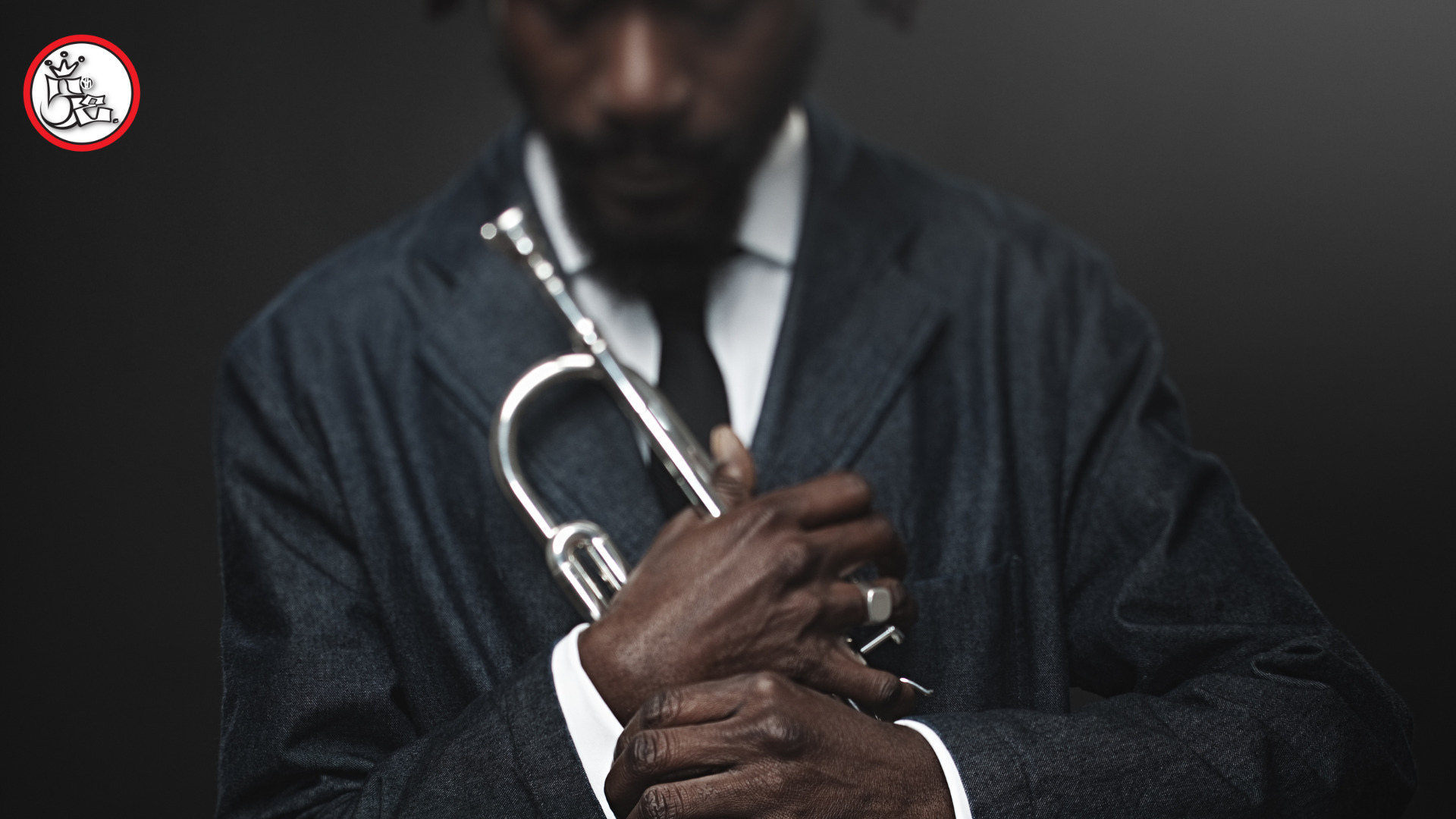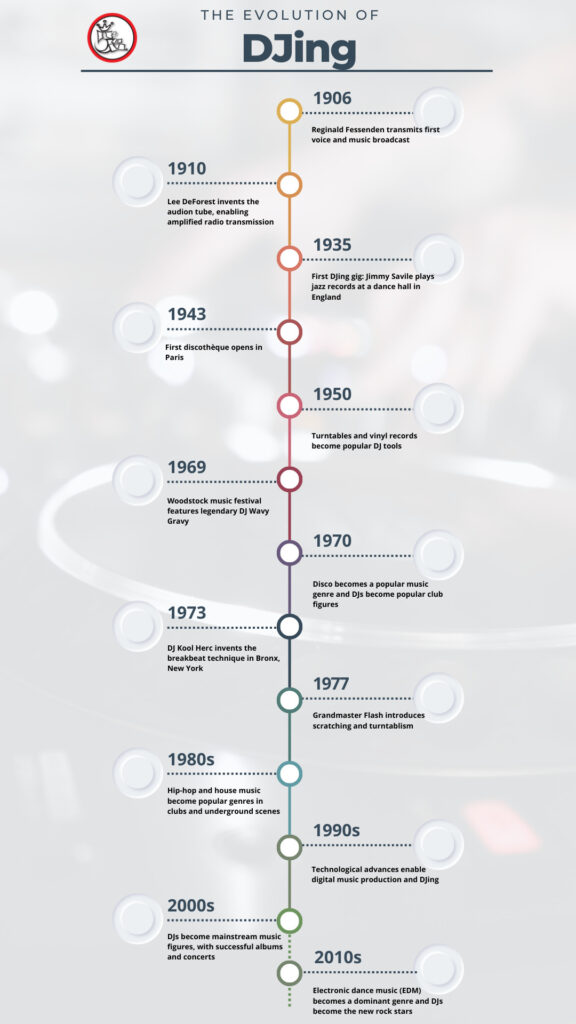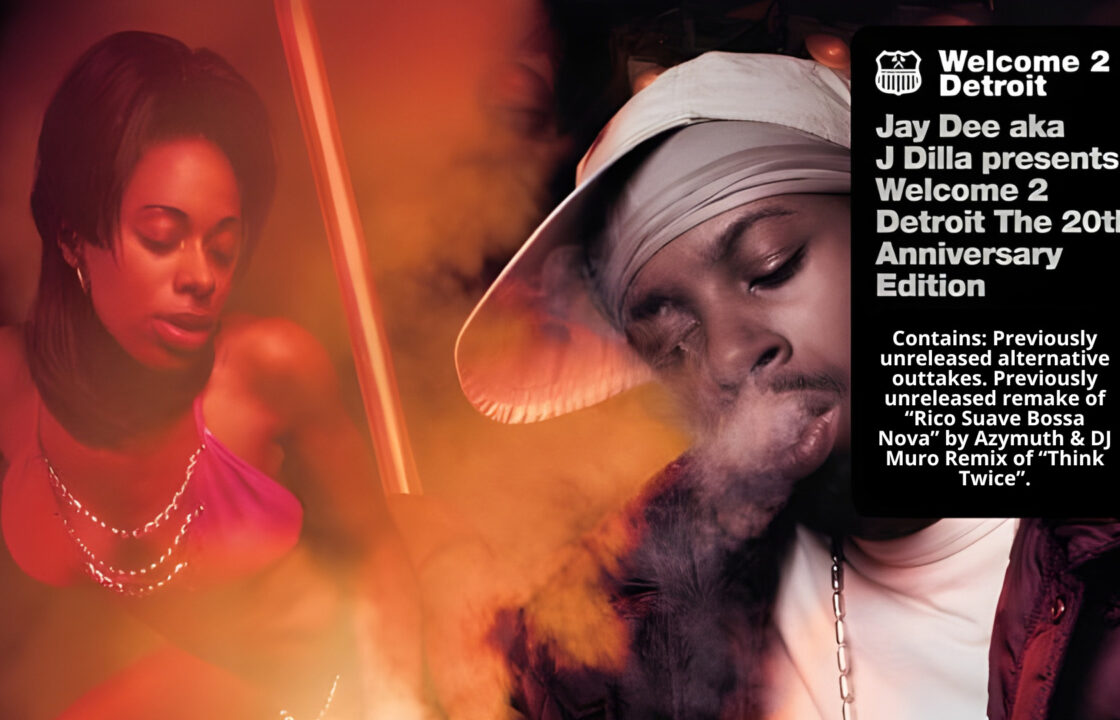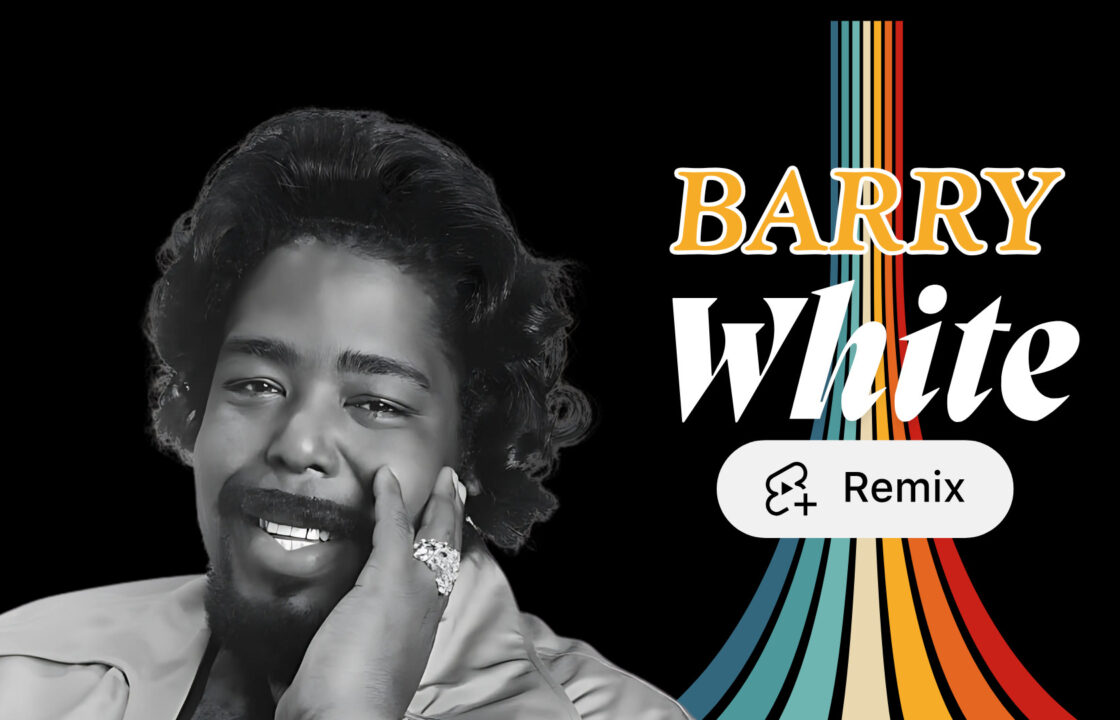
DJing has come a long way since its origins in the early 20th century. From jazz records to EDM, DJs have been at the forefront of music trends and technological advances for over a century. From its early days as a simple method of playing records at dance halls to its current status as a dominant force in the music industry, the history of DJing is a beautiful storyline that any lover of art will appreciate.
Origins of DJing:
The first radio broadcast of voice and music was transmitted by Reginald Fessenden in 1906, but it wasn’t until the invention of the audion tube by Lee DeForest in 1910 that amplified radio transmission became possible. DJs began to emerge in the 1930s, with the first recorded DJing gig taking place in England in 1935. Jimmy Savile played jazz records at a dance hall in Leeds, England, marking the beginning of DJing as we know it today.
Disco and the Rise of Club DJs:
The disco era of the 1970s brought DJs to the forefront of popular culture. DJs played a key role in the success of disco music, with many becoming popular figures in the club scene. The first discothèque opened in Paris in 1943, but it wasn’t until the 1970s that disco became a worldwide phenomenon. DJs such as David Mancuso, Larry Levan, and Frankie Knuckles became legends in the club scene, creating a new style of music that combined funk, soul, and R&B with electronic beats.
Hip-Hop and the Birth of Turntablism:
In the 1970s, hip-hop emerged as a new genre of music, and DJs played a key role in its development. In 1973, DJ Kool Herc invented the breakbeat technique, which involved isolating and repeating a single drum break in a song to create a new rhythm. This technique became the foundation of hip-hop music, and DJs such as Grandmaster Flash and Afrika Bambaataa became known for their turntablism skills, which included scratching, beat juggling, and other techniques.
Technological Advances and Digital DJing:
The 1990s brought significant technological advances in music production and DJing. The introduction of digital music production software and hardware made it easier for DJs to create and manipulate music on the fly. CDs and MP3s replaced vinyl records as the primary format for DJing, and laptops and controllers became essential tools for DJs.
Throughout the 1990s, house music evolved into new sub-genres, including deep house, acid house, and techno house. These sub-genres added more complex layers of sounds and faster beats, giving rise to new dance moves and culture.
The late 1990s also saw the emergence of electronic dance music (EDM) as a genre in its own right. EDM is characterized by heavy beats, synthesized sounds, and the extensive use of computer technology. EDM festivals such as Electric Daisy Carnival and Ultra Music Festival attract massive crowds of fans from around the world, and have become an important part of the music industry.

The Rise of EDM and the Superstar DJ:
The 2000s saw DJs become mainstream music figures, with successful albums and concerts. Electronic dance music (EDM) became a dominant genre, with DJs such as Tiësto, David Guetta, and Calvin Harris achieving global success. DJs became the new rock stars, headlining festivals and selling out arenas around the world.
In the early 2000s, DJs started to experiment with digital technology and software to create new sounds and remixes. Software programs such as Ableton Live and Native Instruments’ Traktor made it easier for DJs to manipulate music and create new mixes on the fly.
The rise of social media and online streaming platforms such as SoundCloud, Mixcloud, and YouTube have also allowed DJs to reach wider audiences and share their music with fans across the globe.
Today, DJing continues to evolve and innovate, with DJs pushing the boundaries of what is possible with technology and sound. From vinyl turntables to digital software and streaming platforms, the history of DJing is a testament to the creativity and passion of music enthusiasts around the world.
The history of DJing is a rich and diverse one, spanning over a century and encompassing a wide range of genres, styles, and techniques. From the early days of radio broadcasting to the massive festivals and global tours of today, DJs have played a crucial role in shaping the world of music and entertainment.
Whether you’re a fan of house, techno, hip-hop, or any other genre, there’s no denying the impact that DJs have had on the music industry. So the next time you’re at a club, festival, or party, take a moment to appreciate the artistry and skill that goes into being a great DJ.
We hope this has helped you gain a deeper appreciation of the history of DJing, and has given you a better understanding of the techniques, technology, and genres that have shaped this exciting and ever-evolving art form.
Don’t forget to download our –> FREE event checklist, which includes all the essential items you’ll need to ensure your next party or event is a success. And if you’re looking for a professional DJ for your wedding, corporate event, or other special occasion, be sure to contact us at 5th Empire for the best in music and entertainment.
While not only a Boise, Idaho DJ, Mike Gradian has been a staple DJ in the “City of Trees” for decades. He continues to grace venues across the state keeping the art of turntablism alive!



